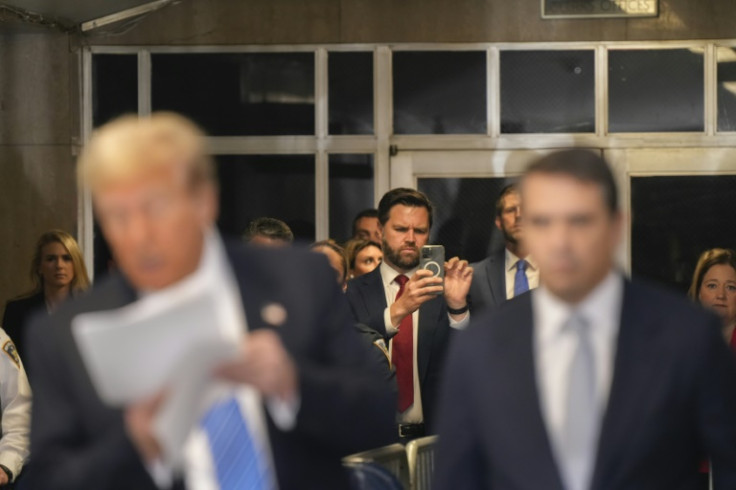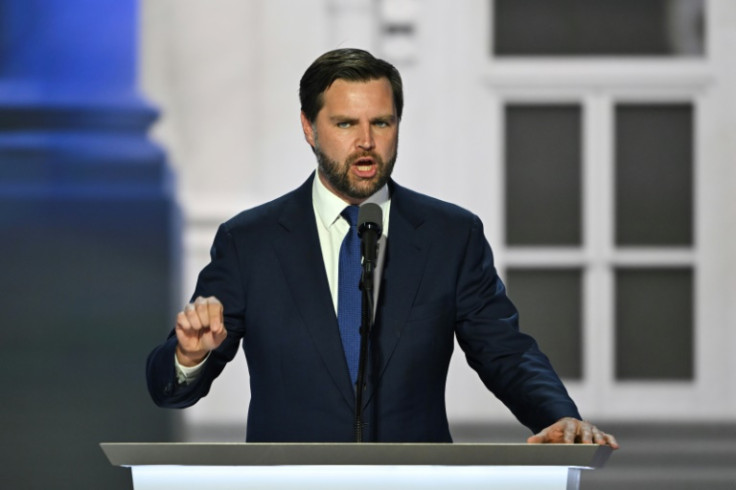
J.D. Vance's formal nomination Wednesday as Donald Trump's running mate completes a remarkable transformation for a 39-year-old senator now seen as the future face of the Republican party.
Vance has been one of Trump's most effective attack dogs in Congress, promoting the dominant populist ideology -- opposing immigration, insistent on Christianity as a touchstone of public and private morality, and opposing support for Ukraine's fight against Russian invasion.
Earlier this year, the Ohio senator warned those who don't step in line behind Trump that he has "a long memory."
"If you're fighting Trump and his endorsed candidates politically today, don't ask for my help," he said.
Vance wasn't always like this.
Once self-described as "a Never Trump guy," Vance previously called the billionaire an "idiot," "noxious" and "reprehensible," according to extensive reporting, while expressing worry that he might be "America's Hitler."
Vance's pre-Washington life story -- from humble beginnings in a fatherless Rust Belt home to military service, an Ivy League education and a Silicon Valley career -- is a rags-to-riches parable.
He made his name with the 2016 memoir "Hillbilly Elegy," a best-selling account of his Appalachian family and modest upbringing, which gave a voice to rural, working-class resentment in left-behind America.
Vance later reinvented himself as a Trump supporter and ultimately won the ex-president's key endorsement in the 2022 Senate race.
In Congress, he has become one of Trump's most ardent advocates, particularly over his numerous struggles in criminal and civil court.
"The Biden administration wants Trump to die in jail and they want to bankrupt his family. It is the biggest assault on democracy we've ever seen," he said in a March post on X.
"If you're too cowardly to call it out, you're not ready for this moment in American politics."
Born James Donald Bowman on August 2, 1984, in the steel-manufacturing hub of Middletown, Ohio, Vance worked as a clerk to a federal judge after graduating from prestigious Yale Law School.
In 2014, he married Usha Chilukuri, a law school classmate and daughter of Indian immigrants. They have three children.
Vance later transitioned from law into the world of technology investment, joining Peter Thiel's Mithril Capital in 2017.
By then, his memoir was already striking a chord with working class Americans grappling with economic stagnation, drug addiction and cultural alienation.
It was made into an Oscar-nominated movie starring Glenn Close and Amy Adams, and Vance leveraged his personal story to become a sought-after commentator.
Vance came to the attention of Trumpworld when his book was picked up by the ex-president's eldest son Don Jr -- now a close friend and admirer of Vance, and reportedly a big influence in his VP nomination.
Once an affable, bookish type, Vance has since become the kind of warrior on the Sunday morning TV circuit that Trump appreciates, lobbing verbal grenades against opponents and generally slinging mud on his mentor's behalf.
After the attempted assassination of the former president on Saturday, Vance pointed the finger at the "Biden campaign" which he said portrayed Trump as "an authoritarian fascist who must be stopped at all costs."
"That rhetoric led directly to President Trump's attempted assassination," he wrote on social media.
Perfectly aligned with Trump's America First movement on issues like immigration reform, economic protectionism and cultural conservatism, Vance has adopted the ex-president's confrontational style.
But he appears further to the right on many issues including abortion, where he embraces calls for federal legislation and has argued against the need for rape and incest exceptions to bans.
Politico suggested in a 7,000-word profile in March that Vance had become the figurehead of what it called "the New Right" -- young conservatives trying to take Trump's isolationist, anti-immigration America First movement in a more radical direction.
"Unlike Trump's more conventional Republican followers, Vance's New Right cohort see Trump as merely the first step in a broader populist-nationalist revolution that is already reshaping the American right." it said.
"And, if they get their way, that will soon reshape America as a whole."









